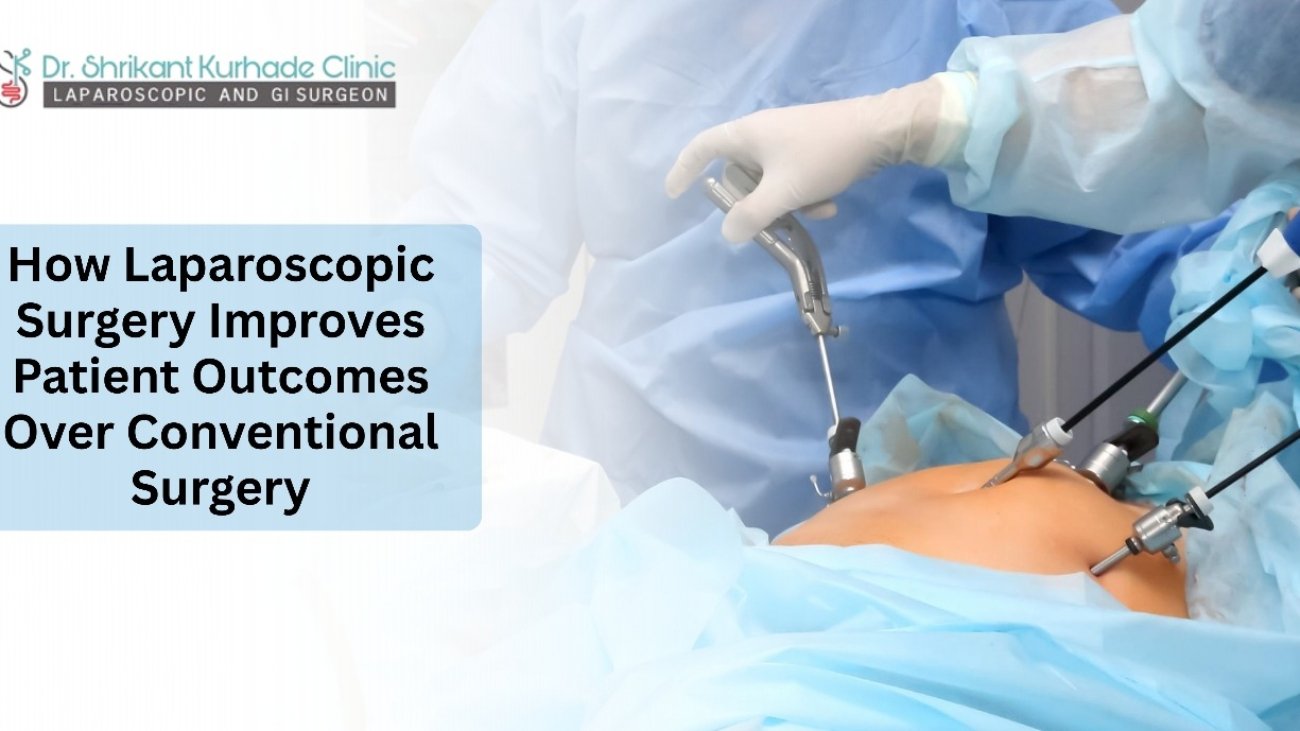Though it has always been an essential component of medical care, technological advancements have made surgery less intrusive, safer, and more effective. One of the most groundbreaking developments in modern medicine is laparoscopic surgery, often referred to as minimally invasive surgery. Unlike traditional open surgery, which requires large cuts, laparoscopic surgery uses small incisions and specialized equipment to perform complex procedures. Many patients often ask, “Is laparoscopic surgery better than open surgery?”—and the clear benefits such as reduced pain, faster recovery, and fewer complications highlight why it is increasingly the preferred choice.
By reducing complications, speeding up recovery, and improving overall quality of life, laparoscopic surgery has significantly transformed patient outcomes over the past few decades. When compared to traditional open procedures, the advantages of laparoscopic surgery over open surgery include smaller incisions, less pain, and faster healing. Let’s explore how this advanced surgical technique differs from conventional methods and why it has become the preferred choice for both patients and doctors today.
What is Laparoscopic Surgery?
Using a thin instrument known as a laparoscope—a long tube with a high-resolution camera and light mounted to it—surgical laparoscopic procedures are performed with precision. Usually less than 1 cm, the surgeon inserts this instrument via a small incision to view internal organs on a display. Additional tiny incisions are made to introduce surgical instruments required for the operation. When comparing laparoscopic vs open surgery, this minimally invasive approach offers smaller cuts, faster recovery, and reduced post-operative discomfort compared to traditional open methods.
Common laparoscopic procedures include:
- Gallbladder removal (Gallstone Treatment)
- Laparoscopic Hernia Surgery
- Appendectomy—that is, appendix removal
- Bariatric Laparoscopic surgery
- Laparoscopic Gastrointestinal Surgery
How Laparoscopic Surgery Improves Patient Outcomes
1.Smaller Incisions and Less Pain
The usage of small incisions in contrast to the big cuts used in open surgery is among the most evident advantages of laparoscopic surgery. Less body trauma from smaller incisions leads to:
- Less post-surgical discomfort
- Less need for painkillers
- Less risk of complications with wounds
2. Faster Recovery and Shorter Hospital Stay
Patients experience faster recovery after laparoscopic surgery because the procedure causes minimal tissue damage. Unlike traditional open surgery, which often requires hospital stays of 5–7 days or longer, most laparoscopic patients can return home within 24–48 hours. This not only reduces hospital expenses but also speeds up overall recuperation.
3. Lower Risk of Infection and Complications
Smaller cuts lower the risk of bleeding, hernia development at the surgical site, and wound infections. Surgeons may operate with more precision, hence reducing problems thanks to high-resolution imaging and sophisticated equipment. This approach is especially beneficial in hernia treatment, where comparing laparoscopic surgery vs open surgery for hernia shows clear benefits of minimally invasive techniques in reducing complications and ensuring faster recovery.
4. Reduced Scarring and Better Cosmetic Results
For many people, surgical scars worry them. Because laparoscopic surgery necessitates just a few small incisions, the scars are far less conspicuous and typically disappear with time. Younger patients and those having visible area treatments particularly profit from this.
5. Early Return to Normal Life and Work
Within a week of laparoscopic surgery, most patients may start their regular life including job. Conventional surgery on the other hand often calls for a recovery period of many weeks. This faster return to normalcy considerably improves patient quality of life and level of satisfaction.
6. Less Blood Loss During Surgery
Better control of bleeding made possible by the sophisticated tools employed in laparoscopic surgeries lowers the need for blood transfusions and so lowers the risk of surgical problems.
7. Improved Precision and Visualization for Surgeons
The laparoscope’s sharp resolution camera offers a magnified perspective of the surgical location, therefore enabling surgeons to clearly see objects. This accuracy enables exact execution of delicate treatments, therefore improving patient results.
When is Conventional Surgery Still Needed?
Although laparoscopic surgery offers several benefits, in some circumstances conventional (open) surgery could yet be needed:
- Huge tumors or masses
- Complicated trauma circumstances
- patients with significant adhesions or scar tissue resulting from earlier operations
- When advanced laparoscopic tools are not accessible
Your surgeon will thoroughly assess your case to suggest the best surgical plan.
The Role of Experienced Surgeons in Better Outcomes
Though laparoscopic surgery is quite complex, the surgeon’s experience and skill are crucial in achieving the best outcomes. A seasoned laparoscopic surgeon ensures quicker recovery, fewer complications, and reduced risks. For patients wondering what are the advantages of laparoscopic surgery, the expertise of the surgeon plays a vital role in maximizing benefits such as minimal scarring, faster healing, and safer results.
Conclusion
By providing quicker recovery, less pain, little scarring, and lower risks than traditional surgery, laparoscopic surgery has changed how patients see surgical treatment. Choosing the correct surgeon is absolutely crucial for people looking for safe, efficient, and modern surgical choices.
Dr. Shrikant Kurhade, a leading laparoscopic and Robotic Surgeon in Pune, is highly skilled in performing advanced minimally invasive surgeries with precision and care. His expertise ensures excellent outcomes and a faster return to normal life for patients.
For patients considering laparoscopic surgery vs open surgery for hernia, selecting the right surgeon ensures safer outcomes, faster recovery, and long-term relief.
Choose Dr. Shrikant Kurhade for sophisticated laparoscopic surgery and start on the first step toward a faster, better recovery.

